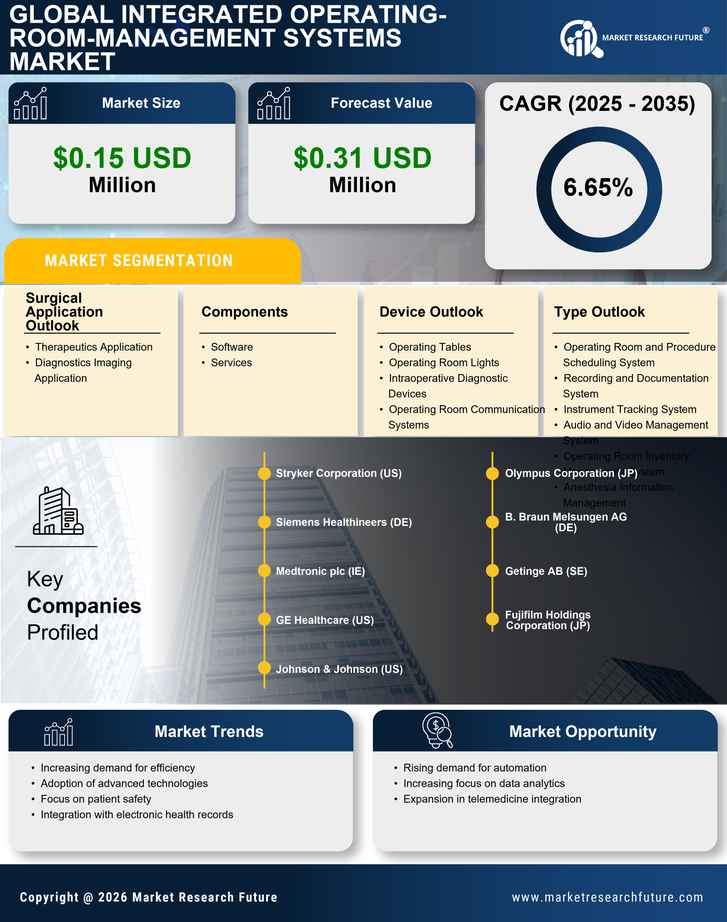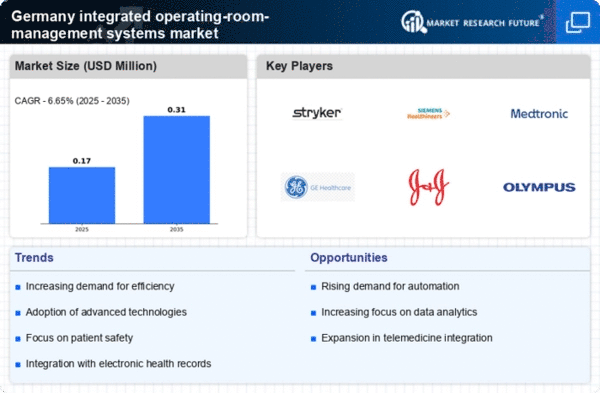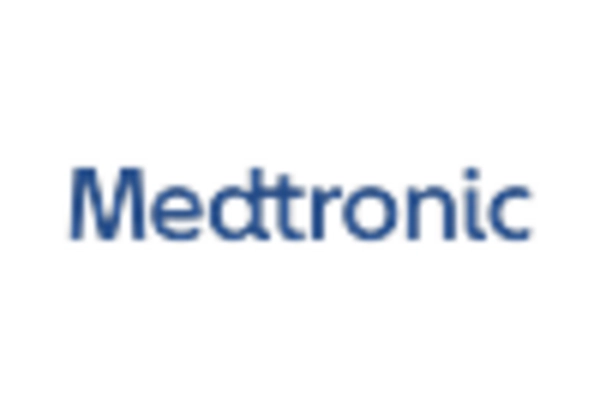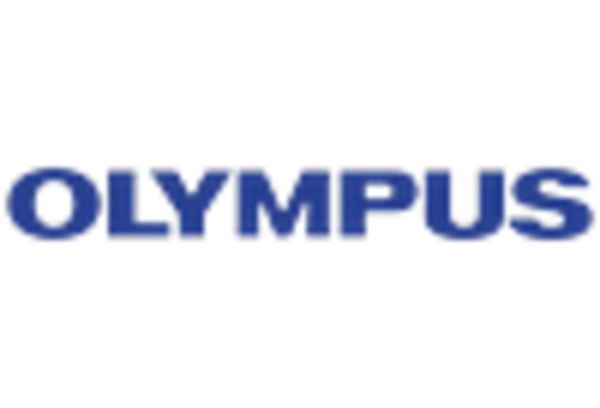Focus on Cost Reduction Strategies
Cost reduction remains a critical driver for the integrated operating-room-management-systems market in Germany. Healthcare providers are under pressure to manage budgets effectively while maintaining high-quality care. Integrated systems offer solutions that can lead to significant cost savings by optimizing resource allocation, reducing waste, and improving operational workflows. Studies indicate that hospitals can achieve up to 30% savings in operational costs through the implementation of these systems. As financial constraints continue to challenge the healthcare sector, the adoption of integrated management solutions is likely to be viewed as a viable strategy for achieving fiscal sustainability while enhancing patient care.
Rising Demand for Surgical Efficiency
The integrated operating-room-management-systems market in Germany is experiencing a notable surge in demand for enhanced surgical efficiency. Hospitals and surgical centers are increasingly adopting these systems to streamline operations, reduce delays, and improve patient throughput. According to recent data, the average surgical procedure time can be reduced by up to 20% with the implementation of integrated systems. This efficiency not only optimizes resource utilization but also enhances patient satisfaction, as shorter wait times are often correlated with better outcomes. As healthcare providers strive to meet the growing expectations of patients and regulatory bodies, the integration of advanced management systems appears to be a pivotal strategy in achieving operational excellence.
Technological Advancements in Healthcare
The integrated operating-room-management-systems market is being propelled by rapid technological advancements in healthcare. Innovations such as artificial intelligence, machine learning, and data analytics are being integrated into operating room management systems, enabling more precise decision-making and predictive analytics. For instance, AI-driven tools can analyze historical data to forecast surgical outcomes, thereby assisting in resource allocation and scheduling. The market is projected to grow at a CAGR of approximately 15% over the next five years, driven by these technological enhancements. As hospitals in Germany seek to leverage these advancements, the demand for sophisticated integrated systems is expected to rise, further transforming surgical practices.
Regulatory Compliance and Quality Standards
In Germany, the integrated operating-room-management-systems market is significantly influenced by stringent regulatory compliance and quality standards. The healthcare sector is under constant scrutiny to adhere to guidelines set forth by authorities, which necessitates the adoption of systems that ensure compliance with safety and quality protocols. Hospitals are investing in integrated solutions that facilitate real-time monitoring and reporting, thereby minimizing the risk of non-compliance. This trend is likely to drive market growth, as facilities that fail to meet these standards may face substantial penalties. Furthermore, the integration of management systems can enhance the overall quality of care, aligning with the objectives of healthcare reforms aimed at improving patient outcomes.
Increasing Emphasis on Data Security and Privacy
As the integrated operating-room-management-systems market evolves, there is an increasing emphasis on data security and privacy. With the rise of digital health records and interconnected systems, safeguarding patient information has become paramount. German healthcare institutions are prioritizing the implementation of integrated systems that comply with data protection regulations, such as the General Data Protection Regulation (GDPR). This focus on security not only protects patient data but also builds trust among patients and healthcare providers. The market is likely to see a shift towards solutions that incorporate robust cybersecurity measures, ensuring that integrated systems are not only efficient but also secure.

















